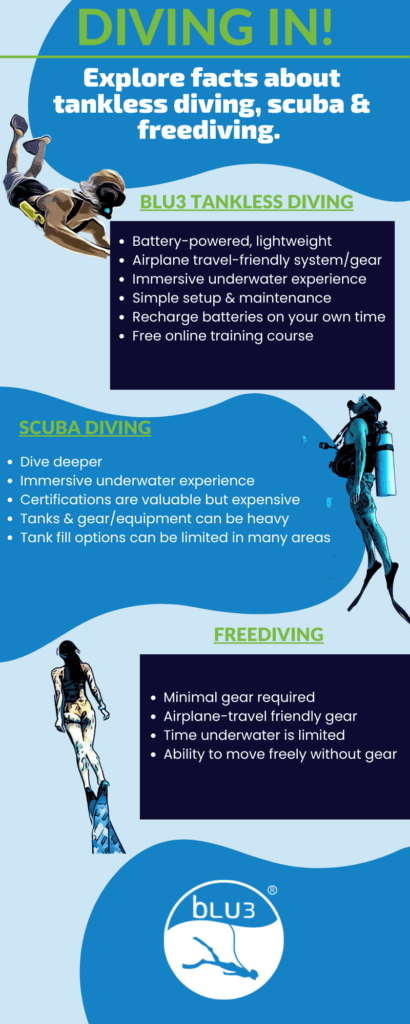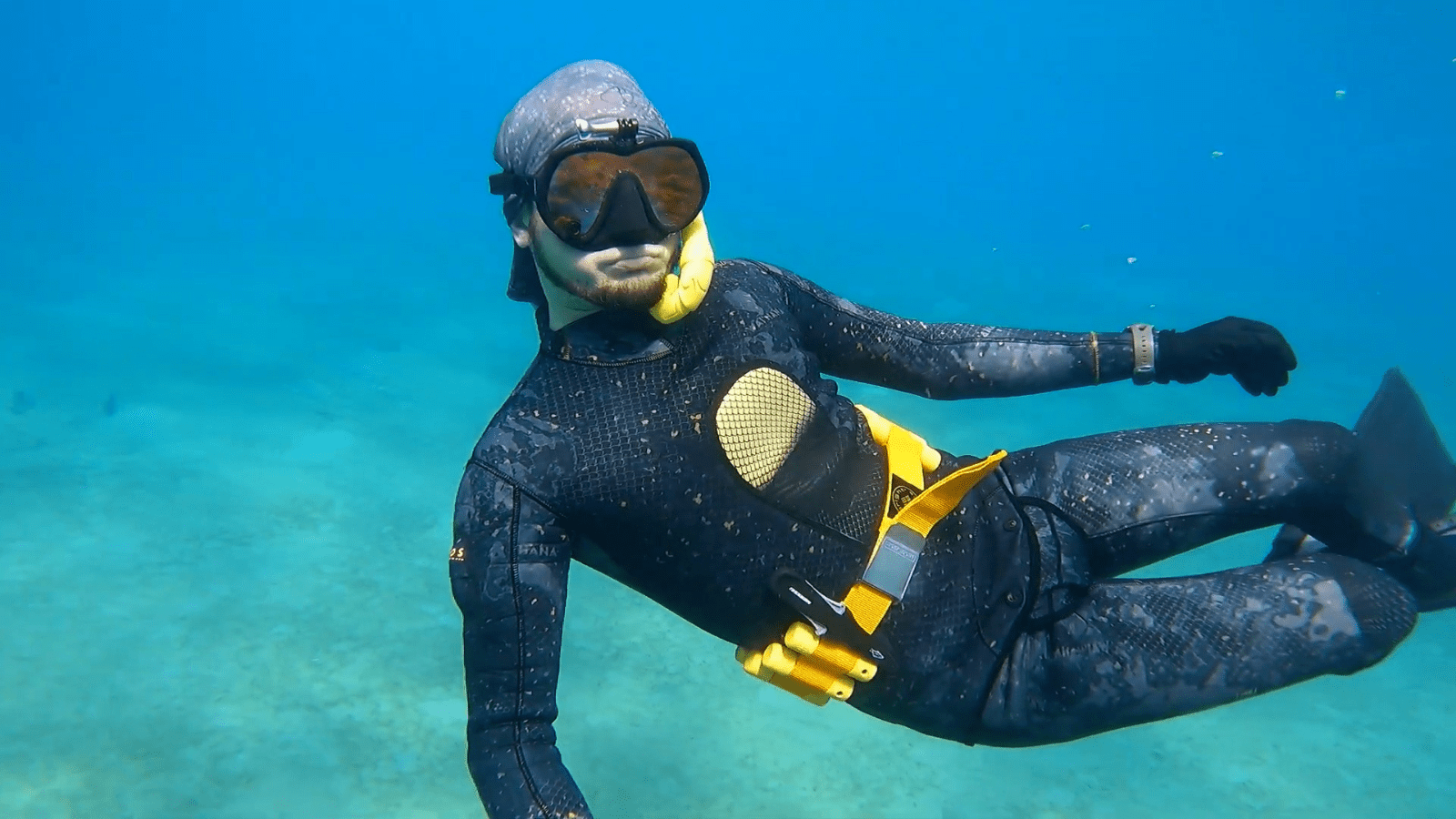Freediving is a globally practiced form of underwater diving relying on breath-holding until resurfacing. Instead of using a breathing apparatus such as scuba or a tankless dive system, freedivers rely solely on the air in their lungs to power their bodies below the surface.
When scuba diving, tanks and heavy gear are required. But freediving only requires a bathing suit, mask and fins – an added bonus for divers eager to feel more free. Similar to scuba though, training is imperative for freediving.
Why Choose Freediving?
While freediving can have a competitive nature to it, many use it as a lifelong chance to radically revamp the mind and body ultimately leading divers to find themselves on a deeper level. When you begin to research freediving pros and cons, you’ll quickly learn that people are often drawn to how freedivers use the silence and serenity to reconnect with nature and become in-tune with their surroundings.
Freediving is both a leisure and competitive sport that challenges water lovers to embrace serene yet competitive elements all at once (an incentive to stay in tip-top shape). With the peace and intensity also comes great delight.
And while some freedivers are on the quest to hit record depths, some are on the search for inner peace. It’s been said that many parallels can be drawn between yoga and freediving. The ultimate goal comes from optimizing and improving the physiological and mental processes which lead to mind-body alignment.
There are several advantageous benefits to freediving. If you’re an avid water enthusiast on the hunt for your next thrill, freediving may be the next best thing for you to try.
Unlock the Freediving Advantage: Explore the BenefitsPros of Freediving
There are many pros to freediving that may not initially be apparent. If you’re still learning how freediving works, here are several reasons to consider it:
- Feeling of freedom
- Less restriction & gear
- Limitless fun
- Minimal environmental impact
- Increased water & confidence safety
- Increased lung function & improved breathing
- Stress reduction
- Greater knowledge and appreciation for the ocean
- Better body awareness
Like most hobbies, freediving does come with its set of obstacles, and as always, it’s essential to understand the potential risks prior to diving in.
Cons of Freediving
As with most sports or hobbies, there are some cons to freediving. These can include:
- Rigorous lung training required
- Less time under the surface
- Environmental hazards
- Depth limit
While you take the time to learn about the pros and cons of freediving, it’s important to keep in mind your own limitations, both physically and mentally, before you decide if freediving is right for you.
Is There a Freediving Alternative?
While freediving is still widely popular in some aquatic regions, it has evolved over the years. And with this, many freedivers have even transitioned to suitable alternatives that are less risky, but still have the simplicity factor. Tankless diving (being the most obvious substitution) has been around for years and with technological advancements, a clearer path has been paved for the booming market.
The underwater path to paradise with tankless diving is seamless. Take battery-powered systems, minimal gear and a quick and easy setup, and you’re ready to conquer the seven seas. Electric (battery-powered) tankless diving has little to no impact on the environment (minimizing carbon footprint too) which is imperative – especially when discovering untouched reefs.
Our systems at BLU3 were designed to introduce new underwater explorers and provide everyone with a thrilling experience that’s as simplistic as snorkeling.
What Type of Diving is Right For Me?
When it comes to deciding whether tankless, scuba or freediving is right for you, it’s important to weigh your options. Identify what type of diver you are (or hope to be) and what you’re trying to achieve under the surface. Both have benefits and limits just like any hobby does.
Check out our infographic below to see the differences between tankless diving, scuba & freediving.

BLU3 Tankless Diving
- Battery-powered, lightweight
- Airplane travel-friendly system/gear
- Immersive underwater experience
- Simple setup & maintenance
- Recharge batteries on your own time
- Free online training course
Scuba Diving
- Dive deeper
- Immersive underwater experience
- Certifications are valuable but expensive
- Tanks & gear/equipment can be heavy
- Tank fill options can be limited in many areas
Freediving
- Minimal gear required
- Airplane-travel friendly gear/equipment
- Time underwater is limited to breath-hold
- Ability to move freely without gear
